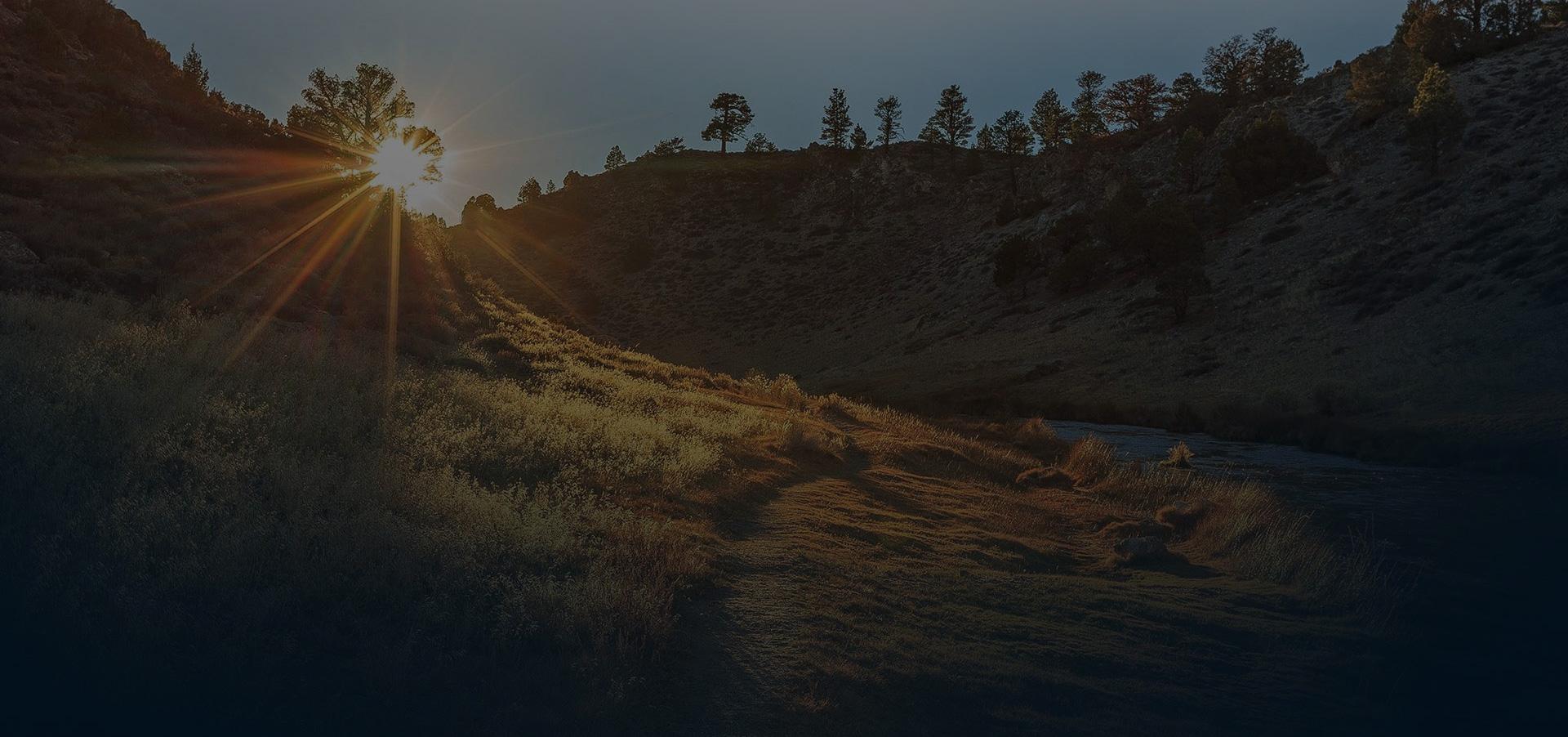California law does not impose specific caps or limitations on damages in wildfire lawsuits, allowing plaintiffs to seek compensation for their actual losses and injuries. However, there may be statutory limitations, procedural requirements, or legal defenses that could affect the outcome of a lawsuit, depending on the specific circumstances of the case.
We understand that losing a home in a fire is devastating. At Robins Cloud LLP, our experienced lawyers are there for you to give you the guidance you need and to fight for the compensation you deserve.
California Wildfire Lawyers
Call 800-691-2363 for Help with a Wildfire Lawsuit in California
In recent years, California has experienced the largest and deadliest wildfires in history, resulting in hundreds of deaths and more than $50 billion in damages. However, a wildfire can’t start without a spark. Many of these blazes could have been avoided if our state’s utility companies had taken more care to maintain their equipment to prevent catastrophic failures.
The California wildfire attorneys of Robins Cloud LLP have a proven track record of zealously pursuing claims on behalf of families and businesses that have been affected by wildfires caused by utility companies. When these companies fail to maintain their equipment properly, entire communities can be devastated by the effects.
Reach out to us today at (310) 340-2898 to see if you might be eligible to file a lawsuit for your losses in a California wildfire.
Who is Liable for California Wildfires?
How can a utility company be held responsible for damages caused by a wildfire? Over 85% of wildfires are caused by humans. When that wildfire is sparked by an old or malfunctioning power line, or a nearby tree that hasn’t been maintained by the utility, there is a clear liability.
Wildfire victims who have homeowners’ or renters’ insurance may be able to recoup some of their losses, but most people still find themselves in need of financial help to put their lives back together when their homes and other property is destroyed in a fire. This is because insurance does not provide coverage for all losses suffered by a wildfire.
Those whose homes or health have been damaged by a wildfire should explore the option of filing a lawsuit to recover further compensation. When liability can be proven—and, in some cases, utility companies will admit their role in starting a fire—we can help you prove you suffered related damages for which you deserve a settlement.
Types of Fire Damage
Wildfires have a devastating effect on surrounding homes and businesses. In your wildfire lawsuit, it is important that you provide an accurate assessment of the damage to your property.
Below are the types of damage caused by wildfire:
- Burn and heat damage: The most destructive form of fire damage is burn and heat damage. When the structure or belongings are burnt or melted, they are often entirely unsalvageable, which results in extensive costs.
- Soot and smoke damage: Smoke and soot damage are long-term effects of fire damage that can take weeks or even months to effectively treat. Smoke and soot stick to objects and have a far reach, resulting in contaminated/destroyed furniture, ductwork, curtains, walls, ceilings, flooring, and more.
- Water and mold damage: While water is necessary for firefighters to put out fire in homes, it often results in significant water and mold damage. Mold can form in as little as 24 hours and spreads rapidly, so any delay in treatment can result in extensive, costly damage.
If your home was damaged by a wildfire, our wildfire lawyers are here to help. Turn to Robins Cloud LLP for the support and guidance you need at a time like this.
The Dangers of Fire Damage
At Robins Cloud LLP, our team is deeply familiar with the long-term health effects associated with wildfire damage. When a home or business catches on fire, occupants are at risk of exposure to carbon monoxide, carbon dioxide, and smoke. These pollutants are extremely toxic and can cause permanent respiratory damage or even death.
If you or someone you love was affected by a wildfire, it is crucial that you obtain a wildfire lawyer to fight for the compensation you deserve. We understand how overwhelmed you are feeling, which is why we are here to protect your rights and best interests at this time.
Call us today at (310) 340-2898 or reach out online to speak with experienced wildfire lawyers and get the compensation you deserve for your fire damage claim.

Robins Cloud LLP is considered a nationwide leader in wildfire lawsuits and litigation. That is why we have compiled important wildfire safety resources, information, and tips here, which we hope will help keep the people of our communities safe*.

WE'VE RECOVERED MILLIONS FOR OUR CLIENTS
We're Here to Fight For You
Update: Ongoing California Wildfire Lawsuits and Legal Developments
Wildfire litigation in California continues to evolve, with new cases and legal strategies emerging as victims and communities seek accountability from utilities and other responsible parties. Lawsuits are still being filed and pursued in connection to recent and past wildfire disasters—including the devastating 2020, 2021, and 2022 fire seasons—demonstrating both the continued threat of wildfires and the persistent issues with infrastructure and utility maintenance.
New Developments in California Wildfire Lawsuits
- Utility Company Liability Remains Front-and-Center: Lawsuits against PG&E, Southern California Edison, and other utilities continue to progress through California courts. Recent cases emphasize that utility companies remain under scrutiny for equipment maintenance, vegetation management, and timely response to fire hazards.
- Settlements and Compensation Funds: Several wildfire victims’ compensation funds remain active, and a growing number of wildfire claims have been resolved through mass settlement agreements. Yet, many claims are still awaiting fair compensation, especially for business owners and renters.
- Ongoing Litigation Over New Fires: After major wildfires in 2022 and 2023—including the Mosquito, Oak, and Fairview Fires—victims have rapidly filed new lawsuits for property loss, health impacts, environmental damage, and wrongful death.
- Class Action and Complex Litigation: California courts are consolidating wildfire claims and hearing large class actions to improve judicial efficiency and offer greater leverage for affected communities seeking recovery.
Recent Legal Victories and Challenges
- Accountability for Repeat Offenders: California courts have increasingly upheld claims against utilities with histories of past wildfires, especially where repeated safety violations were documented.
- Expanded Damages: Plaintiffs in wildfire lawsuits have successfully sought damages not just for property loss, but also for emotional distress, evacuation costs, environmental restoration, and future health impacts.
- Wildfire Claims Keep Evolving: California’s legal landscape around wildfire liability changes as courts address climate change, insurance gaps, and evolving safety regulations. Plaintiffs’ attorneys are pushing to hold utilities and contractors to higher fire prevention standards than ever before.
What This Means for Fire Victims in 2024
- Lawsuits Are Still Ongoing: Even as some claims are resolved, many families and businesses are still fighting for full recovery. If you have suffered losses in a recent or past California wildfire—for damages, evacuation costs, or health problems—you may still have a valid claim.
- Don’t Wait—Legal Timelines Matter: Some deadlines for filing fire damage claims or joining lawsuit settlements may be approaching. Prompt action is critical to preserve your rights, secure evidence, and maximize your legal options.
- Robins Cloud LLP Remains a Leader in Wildfire Litigation: We continue to represent individuals and communities across California in wildfire lawsuits—helping clients fight for the justice, accountability, and compensation they’re owed.
If you have questions about your eligibility for wildfire compensation, or want to learn about recent legal developments, call Robins Cloud LLP now at (310) 340-2898 or contact us online for a free, comprehensive case review.
Your fight for recovery and accountability isn’t over. As California’s wildfire risks—and the legal solutions—continue to change, we’re here to stand with you every step of the way.

MEET OUR TEAM OF ATTORNEYS
Over 100 Years of Combined Experience Working for You

Strong Legal Advice & Guidance
Over Three Decades of Experience Representing Clients Nationwide
-
Experience You Can TrustWe've handled some of the most complex mesothelioma, personal injury, and fire lawsuit cases in the country. With more than 100 years of combined experience, we know what it takes to win in court.
-
We'll Come to YouIf you've been injured or need legal assistance and are in another state, please feel free to contact our team. We're committed to meeting our clients where it's most convenient for them.
-
Helping People Recover Their LossesOver the past three decades, we've assisted our clients in a variety of different practice areas. Regardless of the size or complexity of your case, we have the resources and fortitude needed to represent your best interest and fight for what you deserve.
-
We're Here For Our Clients 24/7We often provide our clients with our direct cell phone numbers so that they can easily get in contact with our staff when it's most convenient for them.
California Wildfire FAQ
-
What are some common causes of California wildfires?
Some common causes of California wildfires can be natural, such as lightning strikes, or human-made, such as power line failures, sparks from equipment, campfires, or cigarettes. Other human activities that can cause wildfires include intentional arson, fireworks, and outdoor burning. Additionally, drought, high temperatures, and strong winds can exacerbate fire conditions, leading to more severe wildfires.
-
What should I do if I have been affected by a California wildfire?
If you have been affected by a California wildfire, the first priority is to ensure your safety and that of your loved ones. Follow any evacuation orders and seek medical attention if needed. Once you are in a safe place, document any damage to your property and belongings, including taking photos and videos if possible. Contact your insurance company as soon as possible to report any losses or damages and begin the claims process. Keep all receipts and records related to any expenses you incur as a result of the wildfire. Additionally, consider seeking the advice of an experienced wildfire attorney who can help you understand your legal options and pursue any available compensation for your losses. Finally, take steps to care for your emotional and mental well-being, as experiencing a wildfire can be a traumatic event. Reach out to support groups or mental health professionals if needed.
-
Do I need a lawyer to file a California wildfire lawsuit?
While it is possible to file a California wildfire lawsuit without an attorney, it is generally not advisable to do so. Wildfire cases can be complex and involve multiple parties, including government agencies, utility companies, and insurance companies. A lawyer with experience in wildfire litigation can provide valuable guidance and advocacy throughout the legal process, including assessing the strength of your case, navigating the legal system, negotiating with insurance companies, and representing your interests in court if necessary.
-
What damages can be sought in a California wildfire lawsuit?
In a California wildfire lawsuit, the damages that can be sought may include compensation for:
- Property damage
- Smoke-related losses
- Physical injuries
- Medical expenses
- Lost wages
- Pain & suffering
- Emotional distress
- The death of a loved one and other related costs
Depending on the circumstances of the case, punitive damages, which are intended to punish the responsible party for their actions, may also be sought. The specific damages that can be claimed will depend on the nature and extent of the losses suffered by the plaintiff, as well as the legal arguments put forward by their attorney. It is important to consult with an experienced attorney to determine the damages that may be available in your particular case.
-
How often do wildfires occur in California?
Wildfires are a common occurrence in California, particularly during the dry season, which typically lasts from late spring through fall. However, the frequency and severity of wildfires can vary from year to year depending on factors such as weather conditions and fuel availability.
-
What time of year are California wildfires most common?
While wildfires can occur throughout the year in California, they are most common during the state's dry season, which typically extends from late spring to early fall. During this time, vegetation is drier and more susceptible to ignition, and weather conditions such as high temperatures and strong winds can exacerbate fire risk.
-
How do wildfires impact air quality in California?
Wildfires can significantly degrade air quality in California, especially in areas near active fires or downwind of them. The smoke produced by wildfires contains harmful pollutants such as particulate matter, carbon monoxide, and volatile organic compounds, which can pose serious health risks, particularly for vulnerable populations such as children, the elderly, and individuals with respiratory conditions.
-
What steps can residents take to prepare for wildfires in California?
Residents can take several steps to prepare for wildfires, including creating defensible space around their homes by clearing brush and vegetation, creating an emergency evacuation plan, assembling an emergency kit with essential supplies, and staying informed about wildfire risks and evacuation orders through local authorities and emergency alerts.
-
How does climate change affect California wildfires?
Climate change is exacerbating wildfire risks in California by contributing to warmer temperatures, drier conditions, and more frequent and intense heatwaves. These conditions increase the likelihood of wildfires and extend the length of the wildfire season, making it more challenging to manage and contain fires.
-
What measures are being taken to prevent wildfires in California?
California employs various measures to prevent wildfires, including public education campaigns on fire safety, restrictions on outdoor activities during high fire danger periods, prescribed burning to reduce fuel buildup, and vegetation management projects to create defensible space around communities. Additionally, state and local agencies work to enforce fire regulations and investigate the causes of wildfires, particularly those suspected to be human-caused.
-
Who can file a lawsuit for damages caused by California wildfires?
Individuals, businesses, local governments, and other entities affected by California wildfires can file lawsuits seeking compensation for damages such as property loss or damage, personal injury, medical expenses, loss of income, and emotional distress. These lawsuits can be filed against parties believed to be responsible for starting or contributing to the fire.
-
What types of claims are typically included in California wildfire lawsuits?
California wildfire lawsuits may include claims for negligence, premises liability, trespass, nuisance, strict liability, and other legal theories depending on the circumstances of the fire and the parties involved. For example, utility companies may face claims alleging that their equipment or infrastructure sparked the fire due to inadequate maintenance or safety practices.
-
What are the grounds for holding utility companies liable in California wildfire lawsuits?
Utility companies in California can be held liable for wildfire damages if their equipment, such as power lines or transformers, is determined to have caused or contributed to the ignition of a fire. Liability may be based on factors such as failure to properly maintain equipment, inadequate vegetation management around power lines, or failure to implement fire prevention measures.
-
Are there any limitations or caps on damages in California wildfire lawsuits?

Robins Cloud LLP is unique in that all our attorneys worked at large, corporate law firms before joining our team. That means we have experience fighting high-profile claims against big defendants. At the same time, we are a client-focused firm that limits its caseload so we can give our full attention to those who need our help. Working with Robins Cloud LLP gives you big-firm resources with a small-firm feel.








.jpg?quality=100&tiny=False)










.0000000000000.png)



